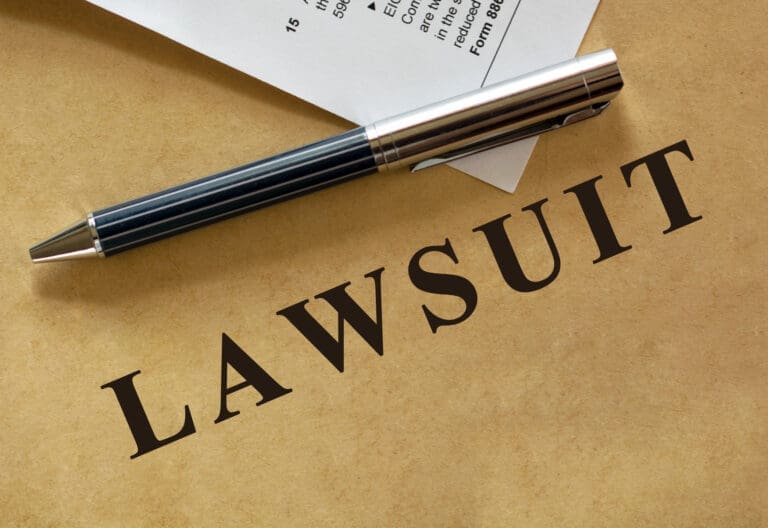
Delitos sexuales are among the most serious offenses in the criminal justice system, carrying severe penalties and long-lasting consequences for those convicted. Understanding the legal process and potential defense strategies is crucial for anyone facing such charges. This comprehensive guide explores the complexities of sex crime cases, from initial accusations through trial and potential appeals, while examining various defense tactics that may be employed.
The term “sex crimes” encompasses a wide range of offenses, including agresión sexual, violación, statutory rape, abuso de menoresy exhibicionismo. Each of these crimes has specific legal definitions and elements that prosecutors must prove beyond a reasonable doubt to secure a conviction. The severity of charges and potential sentences can vary significantly based on factors such as the age of the victim, the use of force or coercion, and the defendant’s prior criminal history.
One of the most critical aspects of sex crime cases is the concept of consentimiento. In many jurisdictions, consent is defined as a voluntary, conscious, and mutual agreement to engage in sexual activity. However, the legal definition and application of consent can be complex, particularly in cases involving alcohol or drug use, power imbalances, or individuals with diminished capacity. Understanding how consent is interpreted in your jurisdiction is essential for both the prosecution and defense.
The legal process for sex crime cases typically begins with an investigation by law enforcement. This may involve interviews with the alleged victim, witnesses, and the accused, as well as the collection of physical evidence such as DNA samples or surveillance footage. It’s important to note that individuals accused of sex crimes have the right to remain silent and should consult with an attorney before speaking to law enforcement or providing any statements.
If charges are filed, the case will proceed through the court system, beginning with an arraignment where the defendant is formally charged and enters a plea. This is followed by pre-trial proceedings, which may include motions to suppress evidence, negotiations for plea bargains, and preparations for trial. Throughout this process, it’s crucial for the defense to thoroughly investigate the allegations, gather exculpatory evidence, and develop a strong legal strategy.
One common defense strategy in sex crime cases is challenging the credibility of the accuser. This may involve investigating the accuser’s background, looking for inconsistencies in their statements, or exploring potential motives for false accusations. However, it’s important to approach this strategy carefully, as aggressive attacks on the accuser’s character can backfire and alienate jurors.
Another potential defense is arguing that the sexual activity in question was consensual. This defense often hinges on presenting evidence of the accuser’s behavior before, during, and after the alleged incident. Text messages, social media posts, or witness testimony that suggests a consensual relationship may be used to support this defense. However, it’s crucial to remember that consent must be freely given and can be withdrawn at any time.
In cases involving statutory rape or other offenses where the age of the victim is a key factor, the defense may argue that the defendant had a reasonable belief that the victim was of legal age. This is known as the “mistake of age” defense and may be applicable in situations where the victim misrepresented their age or appeared to be older. However, it’s important to note that in many jurisdictions, mistake of age is not a valid defense for certain sex crimes involving minors.
For cases involving allegations of abuso de menores, the defense may focus on challenging the reliability of child witnesses. Children’s memories and perceptions can be influenced by suggestive questioning techniques or outside influences, potentially leading to false accusations. Expert witnesses, such as child psychologists, may be called to testify about the reliability of children’s testimony and the potential for false memories.
In some cases, the defense may argue that the alleged sexual contact never occurred. This defense strategy often involves presenting alibis, challenging physical evidence, or demonstrating that the accuser’s story is implausible or physically impossible. Forensic evidence, such as DNA analysis or medical examinations, can play a crucial role in supporting or refuting these claims.
The use of expert witnesses is common in sex crime cases. These may include medical professionals who can testify about physical evidence, psychologists who can speak to issues of memory and trauma, or forensic experts who can analyze digital evidence. Both the prosecution and defense may call upon expert witnesses to support their respective cases.
One emerging area of defense in sex crime cases involves challenging the reliability of forensic evidence. Advances in DNA analysis and other forensic techniques have led to increased scrutiny of these methods. Defense attorneys may argue that forensic evidence was improperly collected, contaminated, or misinterpreted, potentially casting doubt on the prosecution’s case.
Another important aspect of sex crime defense is addressing potential false accusations. While false accusations of sex crimes are relatively rare, they do occur and can have devastating consequences for the accused. Defense strategies in these cases may involve demonstrating motives for false accusations, such as revenge, financial gain, or custody disputes. However, it’s crucial to approach this defense carefully and sensitively, as juries may be skeptical of claims that the accuser is lying.
The impact of social media and digital communication on sex crime cases cannot be overstated. Text messages, social media posts, and other digital communications can provide crucial evidence in these cases. Defense attorneys must be prepared to navigate the complex legal landscape surrounding digital evidence, including issues of privacy, authentication, and admissibility.
For cases involving allegations of exhibicionismo or public lewdness, defense strategies may focus on challenging the public nature of the alleged act or arguing that the exposure was accidental or unintentional. These cases often hinge on eyewitness testimony, which can be notoriously unreliable. Defense attorneys may employ tactics such as challenging witness identifications or presenting evidence that contradicts witness accounts.
El papel de negociación de clemencia in sex crime cases is significant. Given the severe penalties associated with sex crime convictions, many defendants may consider plea deals to avoid the risk of a trial. However, the decision to accept a plea bargain should be made carefully, considering factors such as the strength of the evidence, potential sentences, and the long-term consequences of a sex crime conviction, including sex offender registration requirements.
Sex offender registration is one of the most significant long-term consequences of a sex crime conviction. Depending on the jurisdiction and the specific offense, individuals convicted of sex crimes may be required to register as sex offenders for years or even life. This can have profound impacts on employment, housing, and personal relationships. Defense strategies may include negotiating for charges that don’t require registration or challenging the constitutionality of registration requirements in certain cases.
El uso de Pruebas de ADN in sex crime cases has revolutionized both prosecution and defense strategies. While DNA evidence can be powerful, it’s not infallible. Defense attorneys may challenge the collection, storage, or analysis of DNA evidence, or argue that the presence of DNA doesn’t necessarily prove that a crime occurred. Understanding the strengths and limitations of DNA evidence is crucial for building an effective defense.
In cases involving allegations of agresión sexual within intimate relationships, the defense may focus on the complexities of consent within ongoing relationships. This can involve presenting evidence of past consensual sexual activity, exploring the dynamics of the relationship, or challenging the accuser’s motivations for making the allegation. However, it’s important to note that consent must be given for each sexual encounter, regardless of past history.
The impact of alcohol and drugs on sex crime cases is another important consideration. Intoxication can complicate issues of consent and memory, potentially leading to conflicting accounts of events. Defense strategies may involve challenging the reliability of intoxicated witnesses or arguing that the defendant was too intoxicated to form the necessary intent for the crime.
For cases involving allegations of sex trafficking or exploitation, defense strategies may focus on challenging the element of force, fraud, or coercion required for these charges. This might involve demonstrating that the alleged victim acted voluntarily or that the defendant was unaware of any exploitation occurring.
El uso de surveillance footage in sex crime cases has become increasingly common. While video evidence can be powerful, it’s not always conclusive. Defense attorneys may challenge the authenticity of video evidence, argue that it doesn’t show the full context of events, or present alternative interpretations of what the footage depicts.
In cases involving allegations of online sexual offenses, such as solicitation of minors or possession of child pornography, defense strategies often focus on challenging the attribution of online activities to the defendant. This may involve arguments about shared internet connections, hacked accounts, or unauthorized access to devices.
El papel de salud mental in sex crime cases is complex and multifaceted. In some cases, the defense may argue that mental illness or cognitive impairments affected the defendant’s ability to understand or control their actions. However, mental health issues can also be used by the prosecution to argue for harsher sentences or ongoing supervision.
For cases involving allegations of sexual harassment in workplace settings, defense strategies may focus on challenging the severity or pervasiveness of the alleged behavior, arguing that actions were misinterpreted, or demonstrating that the employer took appropriate steps to address any reported issues.
The impact of cultural and linguistic differences on sex crime cases is an important consideration, particularly in diverse communities. Defense strategies may involve exploring how cultural norms or language barriers may have led to misunderstandings or false accusations.
El uso de polygraph tests in sex crime investigations is controversial. While polygraph results are generally not admissible in court, they may be used in investigations or as conditions of probation or treatment programs. Defense attorneys should be prepared to challenge the reliability and use of polygraph evidence.
For cases involving allegations of sexual abuse within religious or educational institutions, defense strategies may focus on challenging the credibility of delayed disclosures, exploring potential motivations for false accusations, or demonstrating that the institution took appropriate steps to prevent and address abuse.
El papel de justicia reparadora approaches in sex crime cases is an emerging area of interest. While not appropriate for all cases, some jurisdictions are exploring alternative resolution methods that focus on accountability, healing, and prevention rather than purely punitive measures.
El impacto de cobertura mediática on sex crime cases cannot be overlooked. High-profile cases can lead to prejudicial publicity that may influence potential jurors. Defense strategies may include seeking changes of venue, challenging jury selection processes, or arguing for mistrials in cases of excessive media influence.
For cases involving allegations of conducta sexual inapropiada in academic settings, defense strategies may focus on challenging the fairness of university disciplinary processes, exploring potential Title IX violations, or demonstrating compliance with consent education programs.
El uso de forensic psychology in sex crime cases is becoming increasingly sophisticated. Both prosecution and defense may employ psychological experts to assess issues such as the reliability of memories, the impact of trauma on reporting, or the risk of recidivism.
In conclusion, navigating the legal process and building a strong defense in sex crime cases requires a comprehensive understanding of complex legal, psychological, and societal factors. From challenging evidence and witness credibility to exploring alternative explanations and mitigating factors, defense strategies must be tailored to the specific circumstances of each case. As the legal landscape continues to evolve, staying informed about current laws, precedents, and scientific advancements is crucial for anyone involved in these challenging cases.
Fuentes:
- https://www.rainn.org/articles/sexual-assault
- https://www.apa.org/topics/sexual-abuse
- https://www.americanbar.org/groups/criminal_justice/publications/criminal-justice-magazine/2019/spring/sex-crimes-prosecutions/
- https://www.ncjrs.gov/pdffiles1/nij/grants/197048.pdf
Citations:
https://www.hesterlawgroup.com/blog/2023/february/4-types-of-protective-orders/
https://attorneys.media/domestic-abuse/
https://engelandmartin.com/how-to-defend-yourself-in-a-domestic-violence-case-in-court/
https://www.nccourts.gov/help-topics/domestic-violence/how-to-get-a-protection-order
https://www.thelawofwe.com/domestic-violence-defense-strategies/
https://www.findlaw.com/family/domestic-violence/domestic-violence-orders-of-protection-and-restraining-orders.html
https://www.californiacriminaldefender.com/the-7-defenses-used-in-domestic-abuse-cases.html








